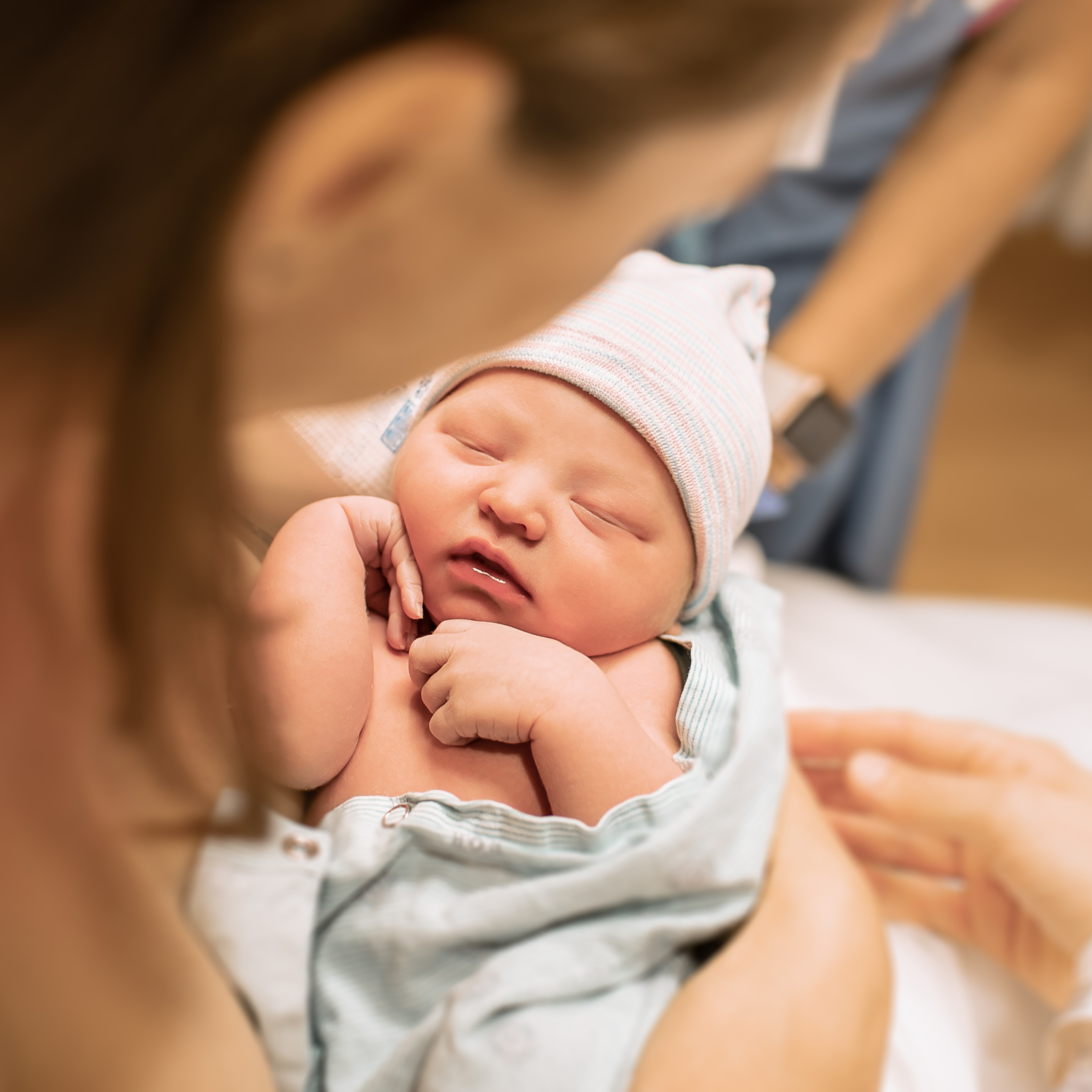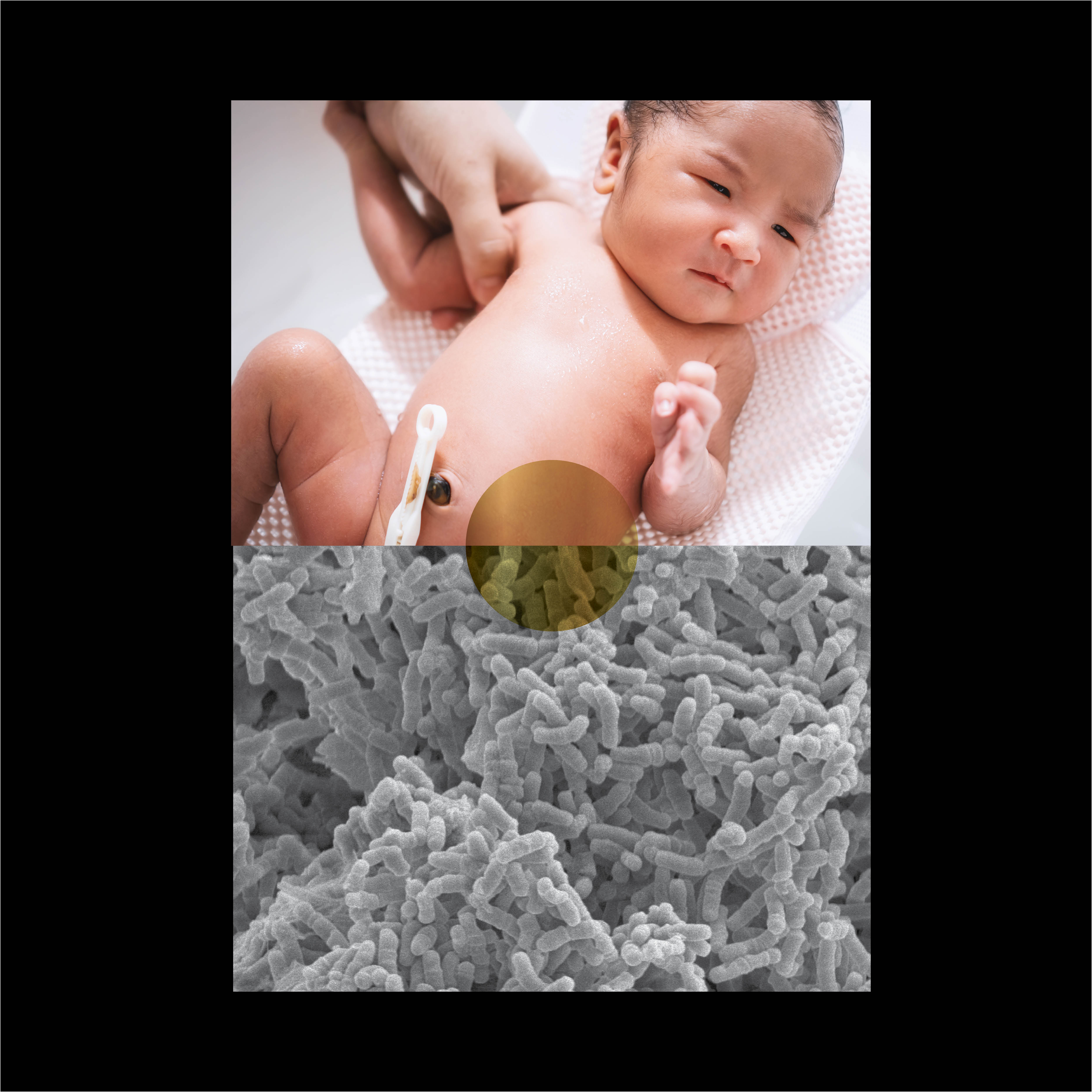Leveraging the microbiome for better health
![]()
Through our deep scientific understanding of the gut microbiome and nutrition during the earliest stages of life, we uncovered a bacterial strain that supports infant gut health.
Our Strains
![]()
B. infantis
The powerful strain that matters for infants.
Our discovery of B. infantis EVC001—a bacterial strain thought to have disappeared from developed countries—proves to be the microbial partner nature intended. While B. infantis has evolved to uniquely pair with breast milk, only EVC001 is clinically shown to have all the genes required to metabolize the human milk oligosaccharides (HMOs) in breast milk.
We then took learnings from EVC001 to create our next-generation strain called INF108. This strain is specially formulated to prevent necrotizing enterocolitis, or NEC, which is primarily seen in preterm infants and occurs when the intestinal wall lining becomes inflamed and dies.
Strong scientific and clinical evidence suggests that B. infantis is associated with a significant reduction in the incidence of necrotizing enterocolitis and NEC-related mortality in very low birth weight infants. The microbiomes of preterm infants given B. infantis also contain lower levels of antibiotic resistance organisms and show biomarkers for reduced gut inflammation.
The revolutionary natural pact:
breast milk & Infinant Health's B. infantis.
![]()
Breast milk feeds the baby—and Infinant Health's B. infantis. Together, they create the system intended to nourish and help protect baby.

Infinant Health's B. infantis strains have a powerful synergy with breast milk
![]()
The confirmation
Research confirms breast milk promotes the growth of Infinant Health's B. infantis strains, EVC001 & INF108 in the infant gut. By utilizing Human Milk Oligosaccharides (HMOs) in breast milk, our B. infantis strains colonize (replicate and persist) in the infant gut.
Why it matters
Unlike other probiotic strains, the Infinant Health B. infantis strains do not pass through but maintain a powerful presence in the gut. To date, no other clinical study has demonstrated a substantial and persistent beneficial change in the gut microbiome.
B. infantis EVC001 helps support healthy immune system function
![]()
The right signals
Our B. infantis strains, EVC001 & INF108, convert HMOs into key signaling molecules called metabolites that help guide healthy immune system function.
Why it matters
Recent research shows that these metabolites promote healthy gut function and help educate immune cells not to become cells that would overreact when exposed to new foods.


B. infantis has almost disappeared in the U.S.
![]()
The big issue
Research shows B. infantis is missing in more than 90% of infants born in the U.S.. Over last few generations, high antibiotic use and changes to feeding and birthing practices have changed the infant gut microbiome.
Why it matters
In places like the US, where there aren’t as many babies with B. infantis in the gut, there tends to be more cases of immune-related issues.

Bruce German, PhD
Founder
Dr. German is a Distinguished Professor and Chemist at the University of California, Davis and Director of its Foods for Health Institute located in the Robert Mondavi Institute. He has had a long and highly distinguished career focused on understanding the role of food and certain food ingredients in delivering improved health. His research investigates how to improve foods and their ability to facilitate improved health. His lab group seeks to discover physical, functional, and nutritional components of human milk.
Dr. German’s particular expertise is the nutrient delivery between mothers and infants in the first few months of life. A co-founder of Infinant Health, he has received numerous awards in recognition of his discoveries and has served as an expert advisor to the world's leading food and nutrition companies and organizations.

David A. Mills, PhD
Founder
Dr. Mills is a Distinguished Professor in the Departments of Food Science and Technology and Viticulture and Enology and holds the Peter J. Shields Chair in Dairy Food Science at the University of California, Davis. He received his PhD from the University of Minnesota and completed postdoctoral studies at North Carolina State University. He studies the molecular biology and ecology of bacteria that play an active role in gut health or fermented foods and beverages.
In the last 24 years, Dr. Mills has mentored over 30 graduate students and postdocs and has generated more than 210 publications, including seminal work on lactic acid bacterial and bifidobacterial genomics. He has worked to define, investigate, and translate the beneficial aspects of human milk and its role in human health. A co-founder of Infinant Health, Dr. Mills has previously served as a Distinguished Lecturer for the American Society for Microbiology where he was elected as a fellow and currently serves on the editorial board of Applied and Environmental Microbiology.

Carlito Lebrilla, PhD
Founder
Dr. Lebrilla is a Distinguished Professor at the University of California, Davis in the Department of Chemistry and Biochemistry and in Molecular Medicine at its School of Medicine. He received his PhD from the University of California, Berkeley and was the Alexander von Humboldt Fellow and NSF/NATO Fellow at the Technical University in Berlin. His research focuses on developing bioanalytical methods based on mass spectrometry with the goals of structurally characterizing bioactives in food and determining their relationships to health and diseases. He has created techniques for the characterization of milk bio actives, most specifically mammalian milk oligosaccharides. He has published over 450 papers and has been cited over 30,000 times.
Dr. Lebrilla is co-chief editor of Mass Spectrometry Reviews and has served on the editorial boards of Molecular and Cellular Proteomics, Mass Spectrometry Reviews, Journal of the American Society for Mass Spectrometry, European Mass Spectrometry, and the International Journal of MassS pectrometry. He is a co-founder of Infinant Health and has co-founded other biotech companies focusing on bioactive foods and biomarkers for early disease diagnosis.

Founder
Dr. Barile is a Professor in the Department of Food Science and Technology at the University of California, Davis. For the past 13 years, her research has centered on the chemical and biological properties of milk, with a focus on small molecules, to generate novel ingredients that can modulate the gut microbiome. The Barile Lab has established a high-throughput platform based on mass spectrometry for rapid-throughput analysis of microbiome-modulating compounds such as glycoproteins, glycans, and glycolipids as well as antimicrobial peptides. Her approach of sequential molecular deconstruction of human donor milk and dairy streams has generated valuable bioinformatic libraries of source materials and fundamental information on the underlying biological and processing conditions that give rise to their formation, preservation, and interaction with the gut microbiome.
Dr. Barile has expanded her analytical work through a series of collaborative studies in animal models and in vitro, documenting selective stimulation of protective gut bacteria and investigating the interaction with pathogenic species. She is principal investigator and co-principal investigator on several USDA and NIH-funded grants on prebiotics/probiotics. The highly collaborative aspect of her research is evidenced by the publication of over 120 research manuscripts in leading peer-reviewed food science and nutrition journals, which have been cited over 4,000 times in just the last 5 years. She received the 2017 UC Davis Chancellor’s Fellow Award, which is awarded to outstanding faculty members who produce groundbreaking research and scholarship early in their careers. Together with other Infinant Health co-founders, her work has been recognized by selection as the 2014 Dean's Team Award for Excellence for Outstanding Multidisciplinary Research Contributions and the 2020 UC Davis Chancellor’s Innovator of the Year Award.

Samara Freeman, PhD
Founder & Executive Director, Regulatory Affairs & Intellectual Property
Dr. Freeman received a Ph.D. in gastrointestinal physiology from the University of Calgary before completing postdoctoral training at the University of California, Davis. While there, she became interested in how science and technology successfully create real-world value. She completed a certificate in business development from the Graduate school of Management at the University of California, Davis, to work at the forefront of the successful translation of research from science to market. With this new perspective, she became one of the co-founders of the Milk Bioactives Program and focused on building and managing multidisciplinary teams centered on the translation and commercialization of scientific discoveries from the program.
Dr. Freeman then spent two years as a manager of a national public-private partnership (Foods for Health Ireland) in Ireland before returning to the University of California, Davis, as the Associate Director of Business Development at the Foods for Health Institute and became a co-founder of Infinant Health, to open the door to commercializing the Institute's pioneering technology. She now focuses full-time on the company as the Director of Intellectual Property and Regulatory Affairs to help commercialize the technology developed at the University of California, Davis.